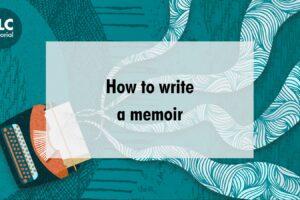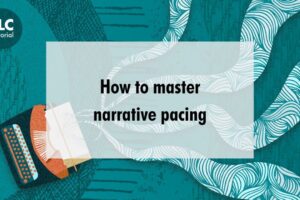Receiving feedback can present a conundrum for writers. We might want it, we definitely need it, but it can also be scary, daunting and perhaps difficult to find. My own writing has grown immeasurably since I’ve been lucky enough to receive feedback from some amazing writers, including by Michael Langan through the TLC LGBT+ Free Reads scheme and from Kirsty Logan via the Cunning Folk mentoring initiative. But getting feedback is just one step on the journey to developing your work whilst using other people’s thoughts and perspectives as a tool. Once you’ve got it there’s the question of what you actually do with feedback, how you consider it and how you incorporate it into your work.
It’s important to acknowledge that receiving feedback is a skill in and of itself. The good news though is, like anything with writing, it’s a muscle you can exercise and strengthen with practice – even if it doesn’t come naturally at first. I’ve had feedback which was very positive and feedback which – whilst still helpful – was unexpected or knocked my confidence. Along the way, I’ve thought a lot about how to get the most out of it to make my writing the best it can, whilst prioritising my own voice and my own mental health.

One of the most important things I’ve learned is that it’s vital to take a break after reading over feedback. In fact, every editor I’ve worked with or spoken to has advised exactly this! Sure, read over feedback as soon as you receive it but then give yourself time before returning to your manuscript. This will allow you to process any feelings that might arise from reading the feedback so that by the time you’re looking at your writing again, you’ve already begun the thought process around editing and your initial emotions will have mellowed.
Another important thing to remember about receiving feedback is that ultimately the agency and choice still lies with you. That doesn’t mean you shouldn’t consider and think deeply about feedback – you definitely should! – but it also doesn’t mean that you have to take any and all feedback on board. Sharing your work with someone else might feel really scary, but you haven’t relinquished control of anything; you’re just giving yourself more perspectives and information on your work. If anything, you’re getting a better handle on what you might want to change, what you’re open to thinking about and what feels like something that is essential to your work.
What I’m saying is that you don’t have to agree with each and every bit of feedback for it to still be valuable. Sometimes we might even get feedback that doesn’t sit well with us because a person doesn’t share our identity or our lived experience. For example, occasionally when I’ve written characters with mental health problems or other disabilities, I’ve got feedback from people who don’t find these characters’ actions to be ‘believable’. For me, I know these actions are realistic as it’s exactly how I would behave!
Not every story is going to be for everyone, and that’s fine. Not all readers will ‘get’ every character and that’s fine too. In this example, it might be useful to think about whether you can provide any more clues for the reader about the character’s motivations, but it’s also okay to respectfully decide not to take on a bit of feedback or only take it on partially. Even feedback you don’t agree with can be extremely helpful in clarifying what you feel strongly about!

On that note, it’s crucial to be selective about who and where you are seeking feedback from. Try to pick writers, readers and organisations whose opinions you value. There’s no point in asking for feedback that you already know you won’t value, just for the sake of it – especially as giving feedback is a time-consuming process. Also, don’t panic if you can’t afford to pay a mentor or an editor to look at your work. Look out for things such as the TLC Free Reads scheme or opportunities for feedback with organisations such as Spread the Word, Creative Scotland or New Writing North. You could also join or set up a local critical writing group, or ask a writing friend to swap work or to be your ‘beta-reader’.
Lastly, getting to read someone’s work is an honour and a privilege but so is receiving feedback! Even if you disagree with something, remember that whoever gave you that comment is just a person trying to give you their best insight into your work and how to improve it. That doesn’t mean you have to concur or take it on board, but remembering that the vast majority of people who give feedback are genuinely trying to help other writers might reposition the way you think about feedback that initially hurts or confuses you.
Ultimately, it’s your workand the choice about where you want to go with it always lies with you. Getting feedback might feel like relinquishing something but it can be an extremely empowering way of learning what really matters in your story and your writing.
At some point in your writing journey, it’s almost inevitable that you will want or need to get feedback on your work. So, I hope some of these thoughts might provide a framework to think of it as something less scary and even enjoyable! Just remember to pause, breathe and focus on the fact that it takes a community to raise a story.









